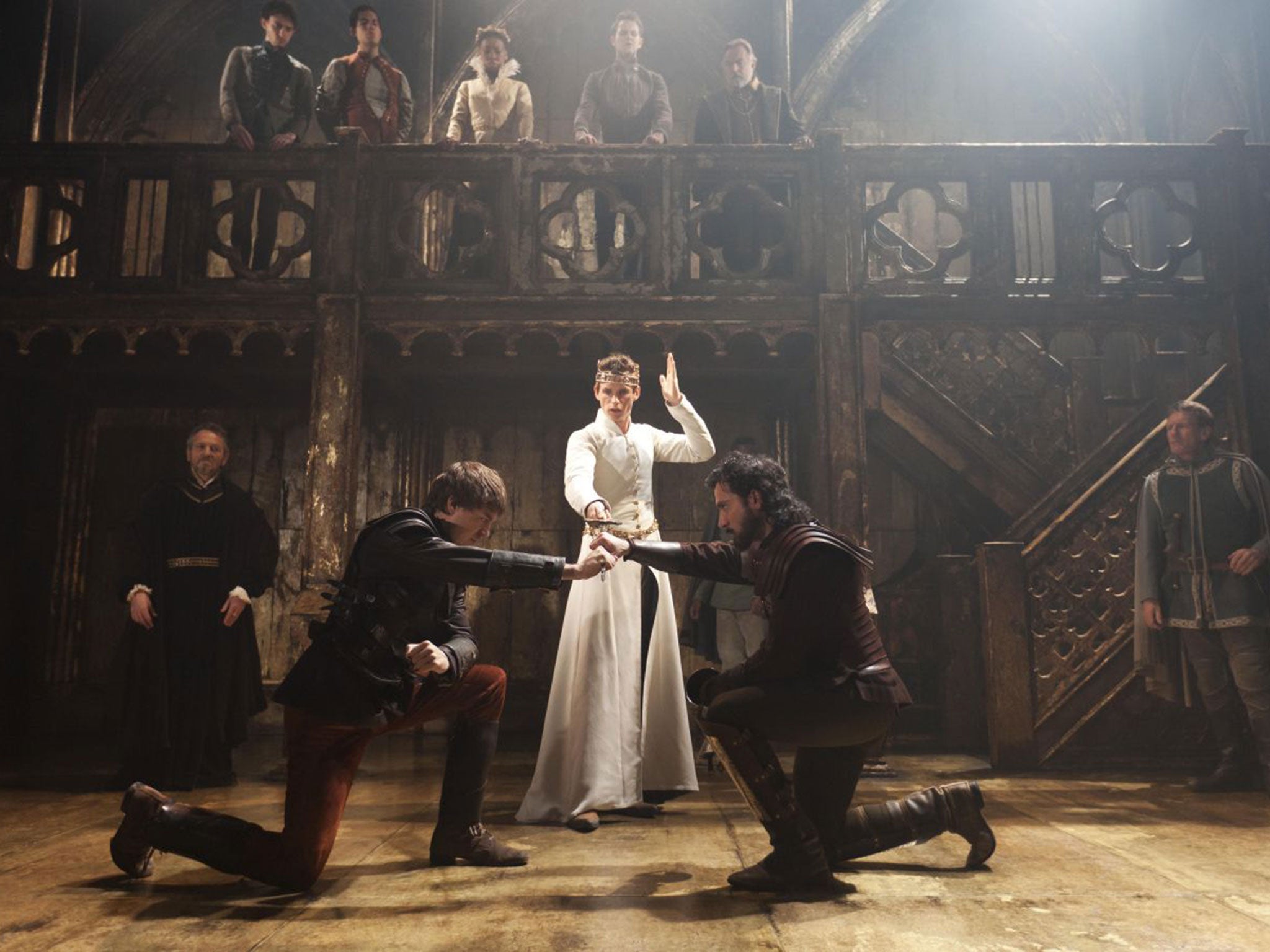Richard II: William Shakespeare's sad, haunting story of the fallibility of kings
The ground Richard invites us to sit on – to 'tell sad stories of the death of kings' – is common ground to all

Home, when I was a child, was less a single place than a set of things. My father, a civil engineer and restless with it, moved through a series of two-year contracts in foreign postings, and my mother, as a result, became an expert in domestic colonisation, reliant on a handful of familiar belongings that always travelled with us.
One of these was a large Axminster carpet, which would be pulled, pungent with naphtha, from its custom-made cylindrical tin case. Another was a rosewood table, which held the mahjong set and bridge cards. And another was a print of John of Gaunt’s famous speech from Richard II, illuminated with heraldic devices, which would be hung up as a talisman of a different kind of Home.
Naturally, it was a carefully selective quotation, beginning with this “Royal throne of kings” and ending, mid-sentence, on the line that runs “This blessed plot, this earth, this realm, this England”, the last word imagined by me in my childish rehearsals, to be pronounced with full, orchestral vibrato, uncomplicatedly heartfelt. And it was years before I discovered that this wasn’t actually the resonant conclusion to a passionate defence of the realm, but the rhetorical prelude for a denunciation of its corrupted state, a lament for a country reduced to a “tenement or pelting farm” (“pelting” meaning paltry or trivial).
It was still more years before I saw how the phrase “this earth” – so thrillingly jingoistic in this selective quotation – provides the key signature for the whole play, a word and a concept that returns again and again, now rarefied and metaphorical, now literal enough to leave mud on a pair of gardeners’ boots. It took me so long because I assumed that Richard II was a slightly dull play, a work that begins in administrative duty (the King presiding over the dispute between Mowbray and Bolingbroke) and ends in compromised self-disgust (the new King disowning the man who has, at his command, executed his predecessor). And it took performances, rather than just reading, to persuade me otherwise.
Derek Jacobi started the process more than 30 years ago, with a performance that movingly illuminated Richard’s tragic inadequacy, a character who has to believe in his divine right to the crown because majesty of character is so hopelessly out of reach. But Ben Whishaw, in Rupert Goold’s production for the BBC’s series The Hollow Crown, completed it, with an account of a king who grows in moral stature as his worldly power (his earthly power) is stripped away from him.
It’s long been a commonplace that Richard II is a proto-Lear, a man who begins with no understanding of the fragility of his position and acquires something regal only in humiliation, but Whishaw rendered it with a pathos worthy of a great tragedy. Richard II is a play about coming down to earth, from a place where you can, briefly, believe that angels will take your side, to one where you understand that your only durable realm is the soil that covers your bones.
For Richard, and the play’s first audiences, that process was knitted together with theories of kingship, and with ideas of protocol that attach only to a monarch. But for the audience watching Richard II it can be – when the production understands that this is not just a political play but a profoundly human one – the dramatisation of another kind of dethroning, that odd internal coup that takes place when we first understand that we are not sovereigns in the world but mere subjects. The ground Richard eventually invites us to sit on – to “tell sad stories of the death of kings” – is common ground to all.
Join our commenting forum
Join thought-provoking conversations, follow other Independent readers and see their replies
Comments
Bookmark popover
Removed from bookmarks